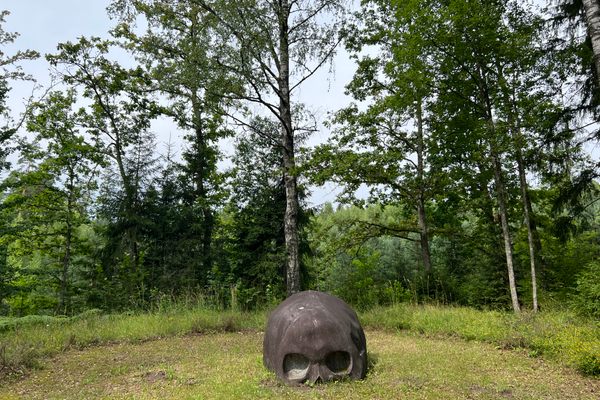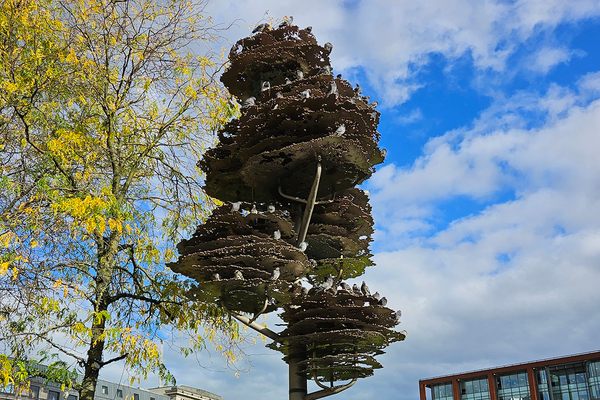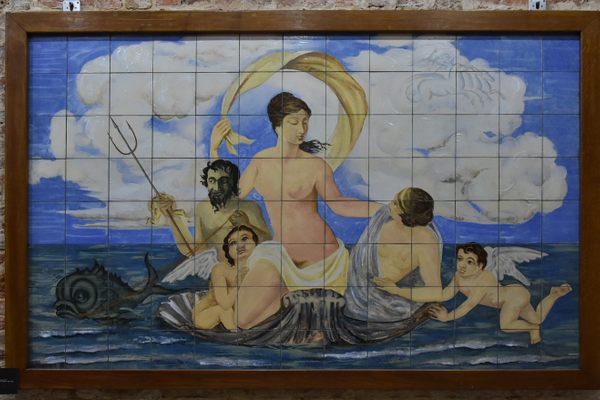About
Sweden managed to navigate the Second World War under a pretense of neutrality to keep the war away from its territory. But it was not only during the war that Sweden cooperated with either the Germans or the Allies, but there are also actions after the war that have been questioned. The most famous of these is the Swedish extradition of Baltic soldiers to the Soviet Union in 1946.
Throughout the war, soldiers fled to Sweden and were placed in detention camps, one of them being Ränneslätt outside of the town of Eksjö. With the Soviet offensive in the Baltics and Finland in 1944, a large number of Germans, Finns, Estonians, and Latvians fled to Sweden. A third of them were deserters, a third were demobilized Finnish soldiers, and a third had, to varying degrees, voluntarily fought for Germany.
In 1945, the Swedish government received a note from the Soviet regime stating that all military personnel from the Eastern Front should be sent back to Russia in accordance with the German terms of capitulation, something Sweden was not formally bound by as a neutral party. The Swedish government, however, agreed to the demands of Stalin's regime. It was assumed at the time that all German soldiers sent back would be treated as prisoners of war, but that the Baltic citizens, after the Soviet occupation of Estonia, Latvia, and Lithuania, would be treated as traitors. The news of the upcoming deportation caused the prisoners to go on hunger strike and there were cases of self-mutilation and suicide among them when they realized what they were facing.
Once deported to the Soviet Union, three of the Balts were executed and 23 were sentenced to long prison sentences. The rest were released within a few months. A total of approximately 3,000 prisoners were sent from Sweden to the Soviet Union in the end.
During their time in the detention camp in Ränneslätt, the prisoners were forced into labor. They built a sports field for a nearby Swedish regiment, installed water piping, and built piers. The biggest construction work was a road that still exists to this day. During the construction, some of the workers erected a rock with the inscription "Deutsche Strasse" (German Street) reminding us of who built this road in the aftermath of the Second World War and the fate that awaited some of them.
Related Tags
Know Before You Go
The Deutsche Strasse Memorial Stone is located on the outskirts of a military exercise field outside of Eksjö in Sweden. Signs and road barriers will indicate if there is an ongoing exercise.
Published
July 13, 2022
Sources
- https://sv.wikipedia.org/wiki/Baltutl%C3%A4mningen
- https://en.wikipedia.org/wiki/Swedish_extradition_of_Baltic_soldiers
- https://military-history.fandom.com/wiki/Swedish_extradition_of_Baltic_soldiers
- https://en.wikipedia.org/wiki/Eksj%C3%B6
- https://books.google.co.uk/books?id=BIbSCgAAQBAJ&pg=PA55&lpg=PA55&dq=%22deutsche+strasse%22+eksj%C3%B6&source=bl&ots=BN-YDE6hmw&sig=ACfU3U1zheepbsV2b3R4_Px_Tq2dL-Cong&hl=sv&sa=X&ved=2ahUKEwivlP_Tr4L4AhUGTcAKHXLVBMQQ6AF6BAgDEAM#v=onepage&q=%22deutsche%20strasse%22%20eksj%C3%B6&f=false































